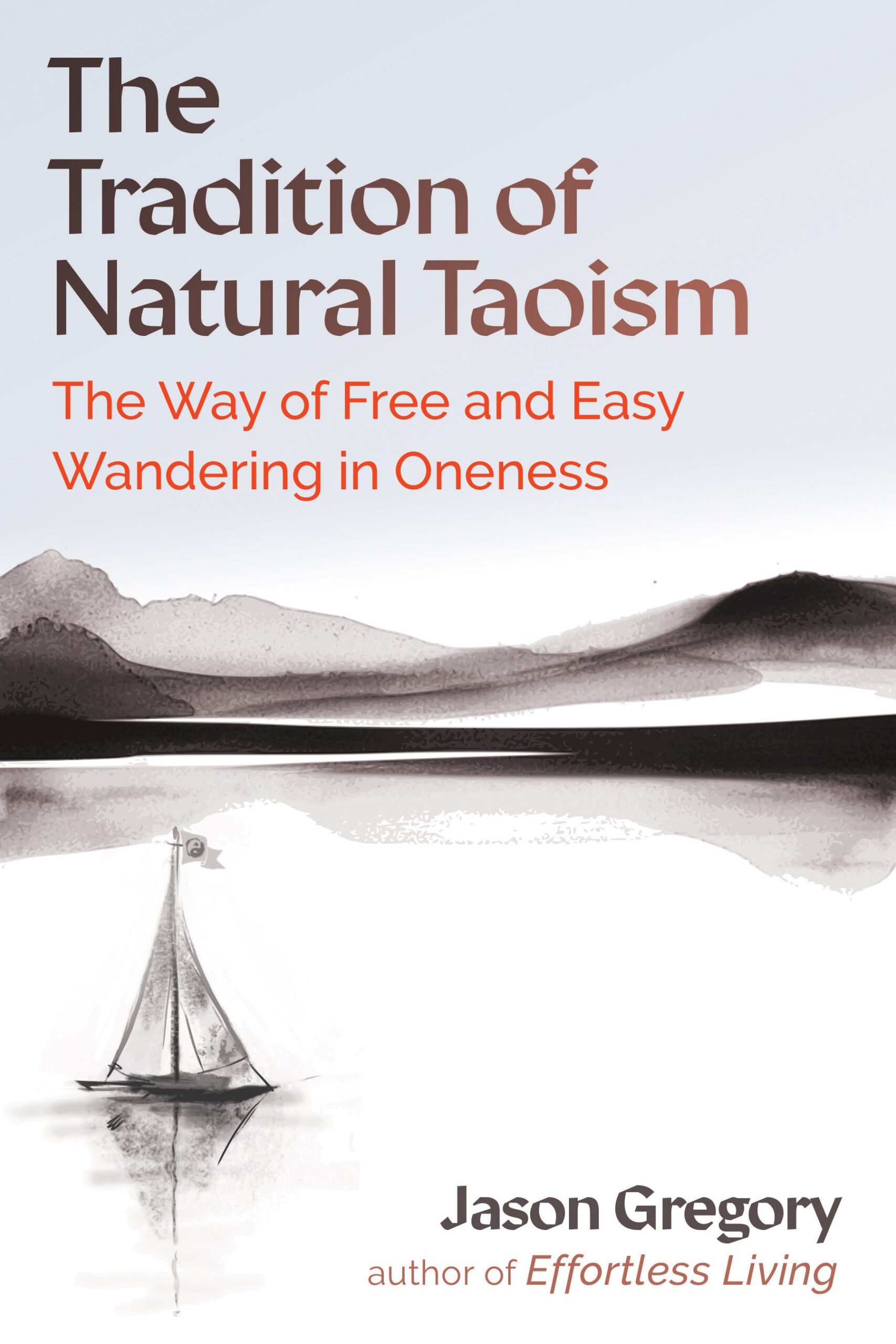Taoism and Vedanta’s Secret to Everlasting Happiness
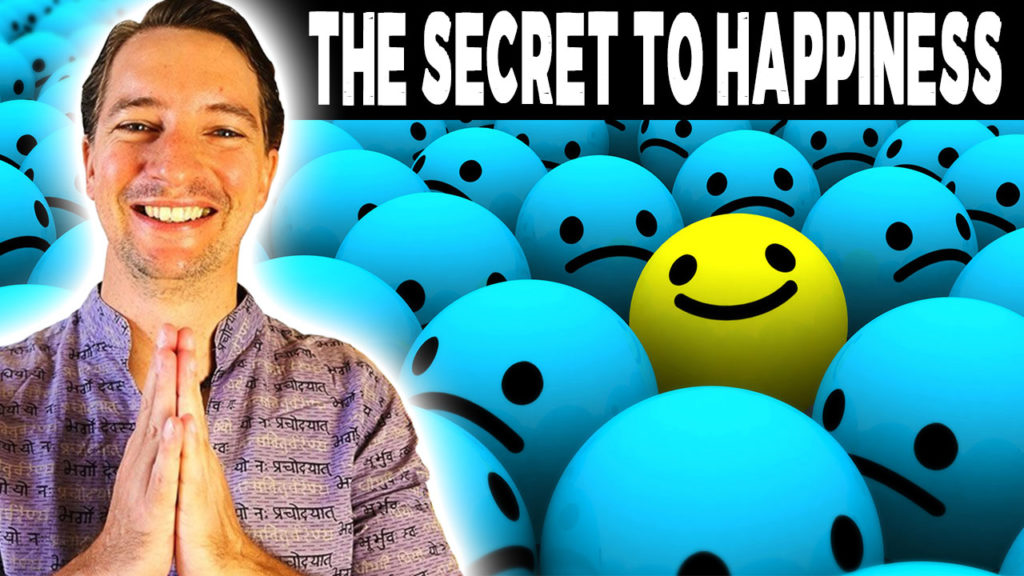
In the episode of Enlightenment Today, I will explain how to experience everlasting bliss. In Vedanta, they speak of ananda, a bliss that is everlasting. But ananda is not an associated form of happiness, rather it is unassociated. Taoism also agrees with the views of Vedanta and have an identical view. In the Tao Te Ching, Lao-tzu explains that there is a contentment of contentment we can experience which is beyond partiality. Both traditions postulate that unassociated bliss is our true nature. But most of us don’t even know what that means, nor have we experienced it. We need to first ask ourselves, what does unassociated bliss really mean? And if it is true, what steps do we have to take to experience this everlasting happiness? NOTE: This site directs people to Amazon and is an Amazon Associate member. As an Amazon Associate I earn from qualifying purchases, at no additional cost to you. The pages on this website may contain affiliate links, which means I may receive a commission if you click a link and purchase something that I have recommended. This goes a tiny way towards defraying the costs of maintaining this site.
10 Books You Must Read in Self-Isolation (COVID-19)

At the moment a lot of people are in self-isolation due to the current situation. This is an uncomfortable experience for many who are attuned to constant busyness. People are going stir-crazy without seeing this time as an opportunity that may never return. Instead of going crazy, we should be investing in our own life. So instead of our usual habit of chasing money, it is a great time to invest in knowledge. In this video I will share with you 10 books that will transform your life. The knowledge discovered in these books are something you will take with you forever and will benefit your life, no matter how dire the situation is. It is time to reinvest in what is important. Understanding your true nature is priceless. NOTE: This site directs people to Amazon and is an Amazon Associate member. As an Amazon Associate I earn from qualifying purchases, at no additional cost to you. The pages on this website may contain affiliate links, which means I may receive a commission if you click a link and purchase something that I have recommended. This goes a tiny way towards defraying the costs of maintaining this site.
How to Meditate Properly: The Ultimate Guide to Meditation
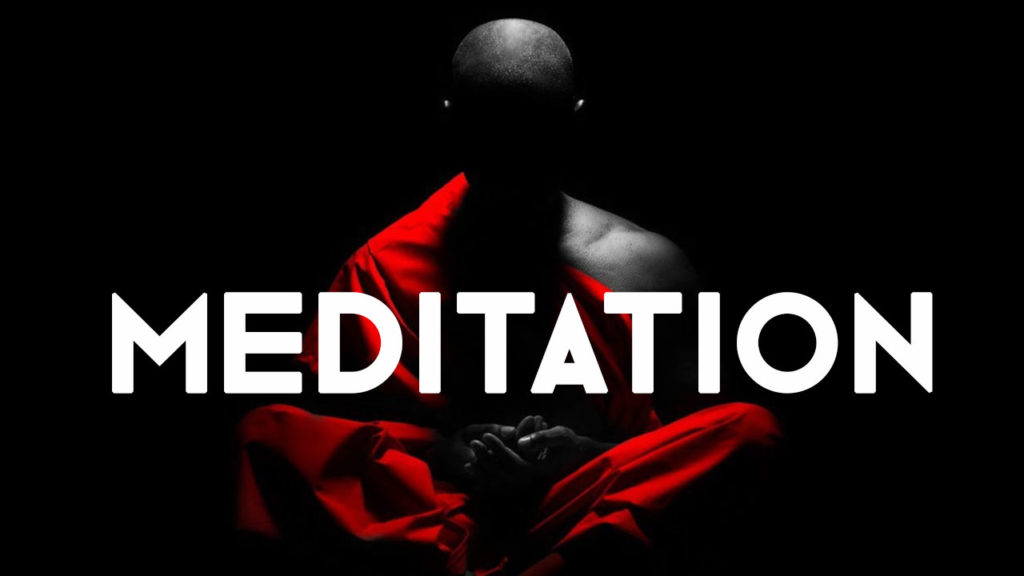
Meditating properly requires a lot more than closing our eyes and observing our thoughts. Meditation actually requires a complete transformation of our lifestyle to cultivate concentration so that we can harvest a deeper level of meditation. To achieve the ultimate benefit from meditation we need a philosophy and expert techniques to teach us how to concentrate deeply on the object of meditation, until that object disappears, revealing our true nature which is the reason we are supposed to meditate in the first place. In this meditation tutorial, I will teach you how to meditate properly through the philosophy behind meditation and the ancient meditation techniques we should follow to experience the ultimate meditative state of samadhi. NOTE: This site directs people to Amazon and is an Amazon Associate member. As an Amazon Associate I earn from qualifying purchases, at no additional cost to you. The pages on this website may contain affiliate links, which means I may receive a commission if you click a link and purchase something that I have recommended. This goes a tiny way towards defraying the costs of maintaining this site.
The Hidden Meaning of Yoga | Patanjali Yoga Sutras
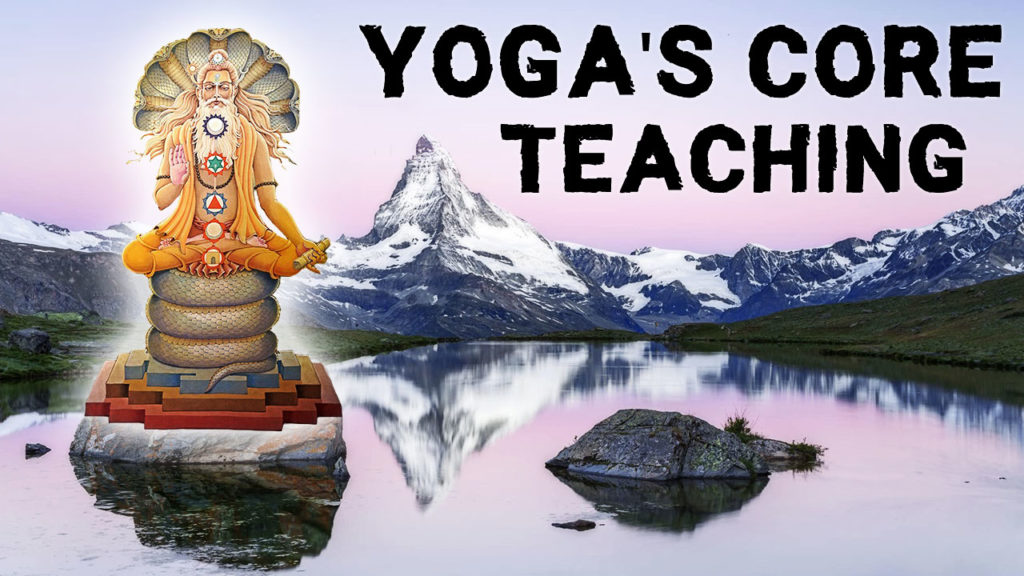
The first four sutras of the famous Yoga Sutras of Patanjali are the essence of yoga philosophy and practice. These sutras contain the well-known Sanskrit phrase yogas chitta vritti nirodha, which means “yoga is the cessation of the whirlpools (fluctuations) of mind.” In this episode of The Sacred Word, I will explain what these four sutras actually mean and why they are imperative to comprehend to further your meditation practice and eventual union with universal consciousness, yoga. NOTE: This site directs people to Amazon and is an Amazon Associate member. As an Amazon Associate I earn from qualifying purchases, at no additional cost to you. The pages on this website may contain affiliate links, which means I may receive a commission if you click a link and purchase something that I have recommended. This goes a tiny way towards defraying the costs of maintaining this site.
A Mystic’s Controversial View of Spiritual Awakening
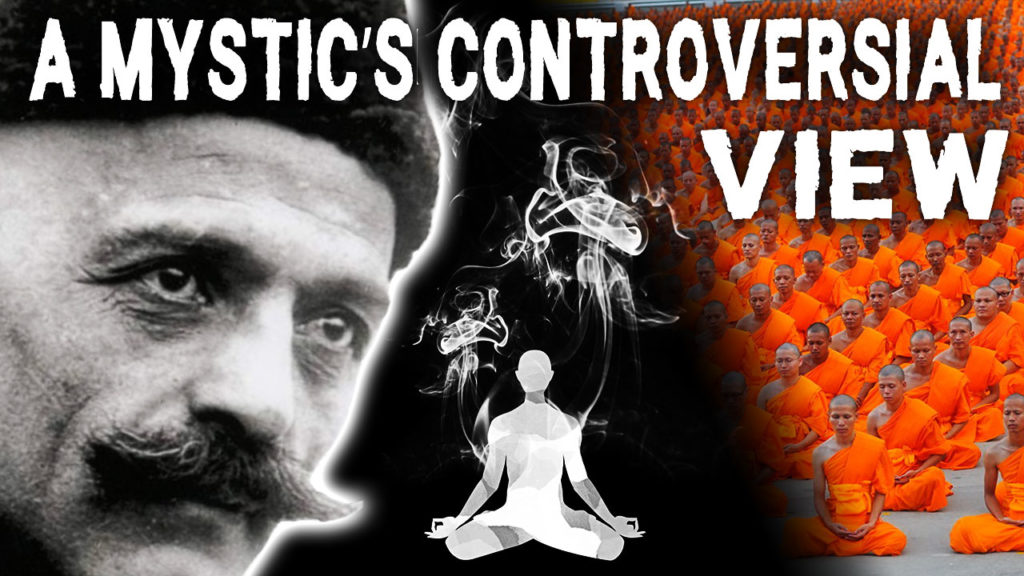
George Ivanovich Gurdjieff had one of the most controversial views on individual enlightenment and collective awakening. But this perspective was not a new philosophy and actually makes a lot of sense when we explore it at length. In this episode of The Sacred Word, I will explain Gurdjieff’s view of how our individual enlightenment is opposed by something much greater than ourselves. NOTE: This site directs people to Amazon and is an Amazon Associate member. As an Amazon Associate I earn from qualifying purchases, at no additional cost to you. The pages on this website may contain affiliate links, which means I may receive a commission if you click a link and purchase something that I have recommended. This goes a tiny way towards defraying the costs of maintaining this site.
Lord Shiva’s Song Chapter 3 Explained: The Knowledge of Shiva’s Existence in the World
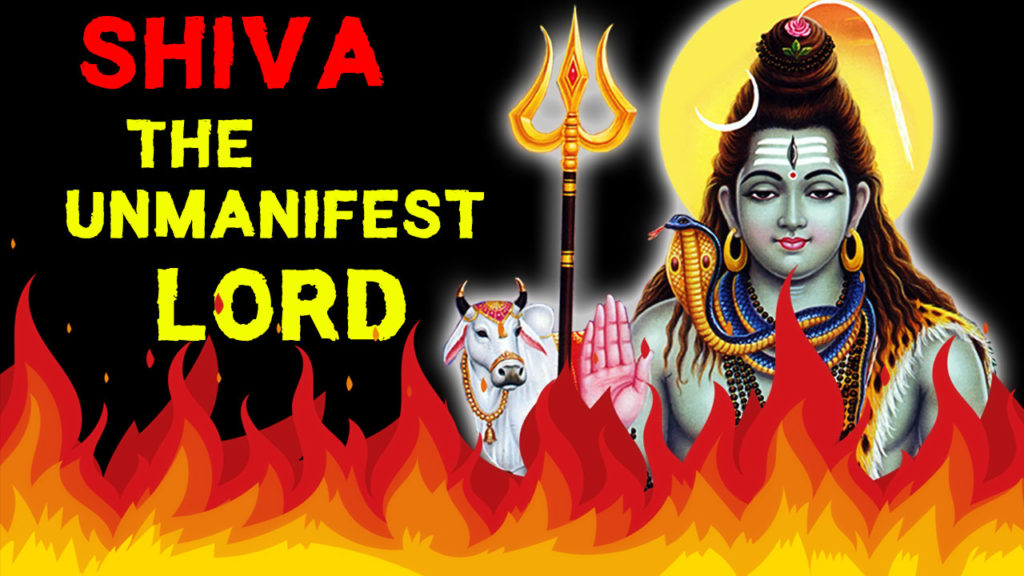
In the Īśvara Gītā, Chapter 3, stanzas 1-7, Shiva explains to the great sages the nature of the unmanifest Brahman (Shiva is a representation of the ultimate reality of Brahman). Shiva explains how the unmanifest Brahman dwells in the world and yet is beyond it. These seven stanzas are designed for all of us to understand how that unmanifest Lord dwells within us as one consciousness. In this episode of The Sacred Word, I will unpack all seven stanzas so that you too can come to the knowledge of Brahman’s existence in the world and in your own heart. NOTE: This site directs people to Amazon and is an Amazon Associate member. As an Amazon Associate I earn from qualifying purchases, at no additional cost to you. The pages on this website may contain affiliate links, which means I may receive a commission if you click a link and purchase something that I have recommended. This goes a tiny way towards defraying the costs of maintaining this site.
How Your Ego Survives Spiritual Transformation
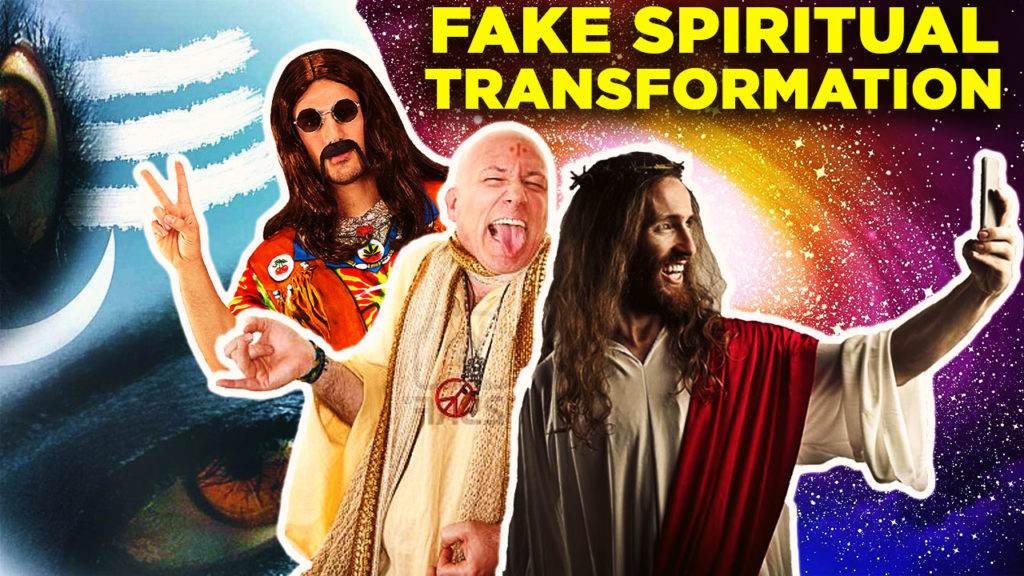
In this episode of Enlightenment Today, I will explain how our ego survives spiritual transformation. When people encounter spirituality the ego has a tendency to slip under the door of our apparent spiritual transformation. This is in part due to how we drop our social role and persona for a spiritual role and persona. This pervades the way we dress, speak, and behave, which are all predicated on a notion of a higher spiritual morality that we should now embody. But this entire process is essentially what keeps the ego alive and thriving in the background of our new and apparently improved spiritual role. Real spiritual transformation has nothing to do with how you look, behave, or speak. It is something much deeper, a place where the ego is on life support. Find out more. NOTE: This site directs people to Amazon and is an Amazon Associate member. As an Amazon Associate I earn from qualifying purchases, at no additional cost to you. The pages on this website may contain affiliate links, which means I may receive a commission if you click a link and purchase something that I have recommended. This goes a tiny way towards defraying the costs of maintaining this site.
BRAHMAN AND THE TRIMURTI: The Relationship Between the Ultimate Reality and the Hindu Gods
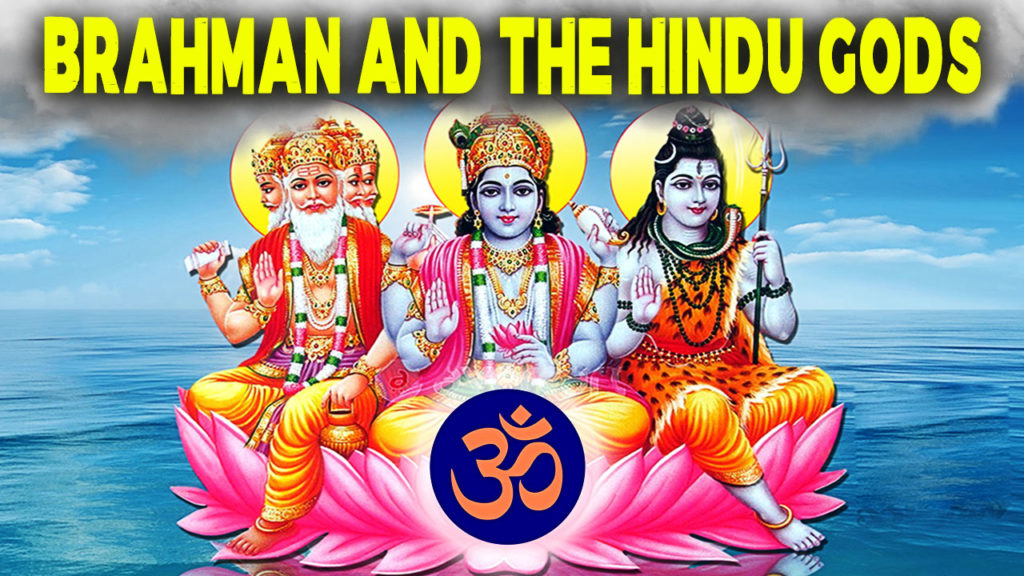
In this episode of Enlightenment Today, I will explain the relationship between Brahman and the Trimurti of Hindu gods, known as Brahma, Vishnu, and Shiva. All of the deities of the Hindu pantheon make up a complex system to intricately explain the nature of the universe and consciousness, from the microcosm to the macrocosm. But it is the Trimurti that represents the core of the Ultimate Reality of the universe, Brahman. This relationship represents the unfolding of time, matter and spirit, through the universal process of creation, preservation, and destruction. NOTE: This site directs people to Amazon and is an Amazon Associate member. As an Amazon Associate I earn from qualifying purchases, at no additional cost to you. The pages on this website may contain affiliate links, which means I may receive a commission if you click a link and purchase something that I have recommended. This goes a tiny way towards defraying the costs of maintaining this site.
These Simple Mantras Will Help You Through Life’s Most Difficult Situations
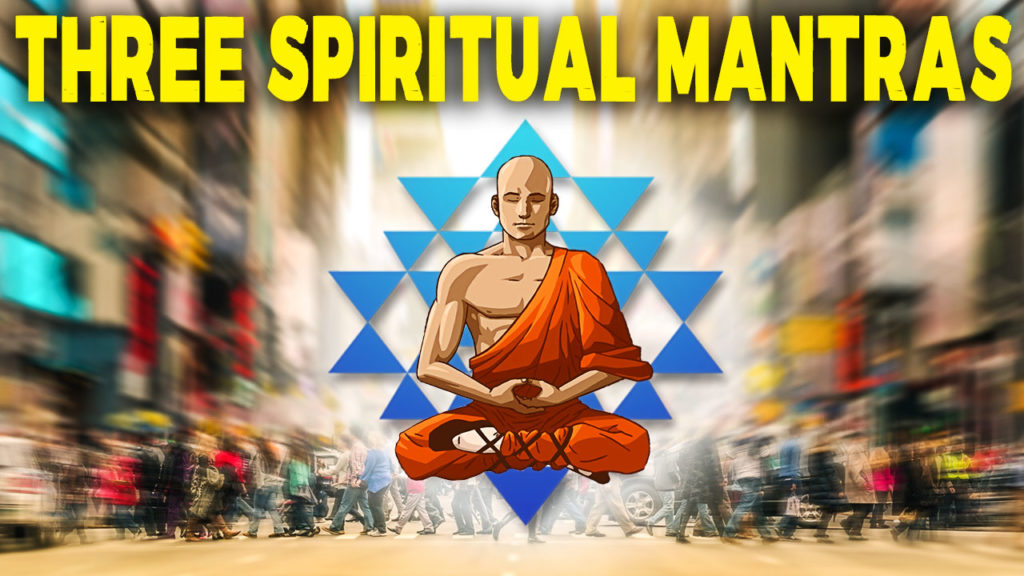
In this episode of Enlightenment Today, I will speak about three spiritual mantras that will help you though life’s most difficult situations. There are thousands of mantras to come out of Asia, but the three mantras I recite are arguably the most calming and powerful. They not only have the ability to help you out of the most difficult situations, but they also posses the ability to bring equanimity to the mind, leading one into a deeper introspection of one’s nature. NOTE: This site directs people to Amazon and is an Amazon Associate member. As an Amazon Associate I earn from qualifying purchases, at no additional cost to you. The pages on this website may contain affiliate links, which means I may receive a commission if you click a link and purchase something that I have recommended. This goes a tiny way towards defraying the costs of maintaining this site.
Why Study is Crucial for Spiritual Growth and Maturity
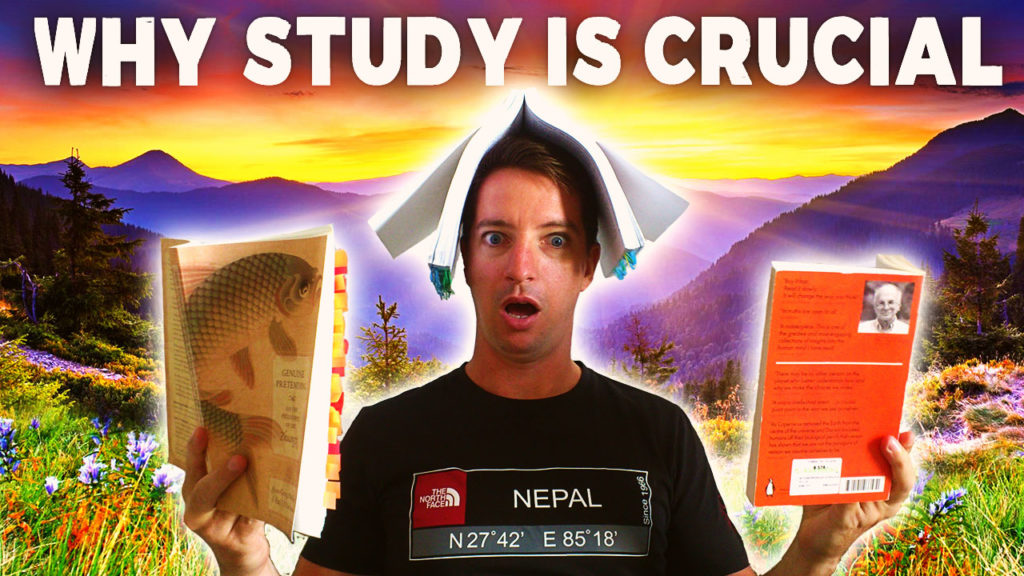
In this episode of Enlightenment Today, I will explain why intellectual study is crucial for spiritual growth and maturity. There are a growing number of people interested in spirituality who are under the illusion that they don’t need to intellectually understand the tradition they are attracted to. This has developed due to the misinterpretations of classical texts through bad translations, resulting in a deep misunderstanding, usually based on someones cultural biases, beliefs, and cognitive style. Such misunderstandings in part happened as a result of the migration of Eastern philosophy to the West, leading to the materialistically driven and overly sensationalistic new age spirituality that has become popular. A user’s manual is important for anything we want to understand deeply, spirituality is no exception. Theory and practice have always been the core of the great Eastern traditions, no matter whether it is Hinduism, Buddhism, or Taoism. These three traditions, specifically, explain that if an individual has no frame of reference, then there is no way one could understand the deep wisdom and meditative experiences passed down through these traditions. Find out why study is crucial. NOTE: This site directs people to Amazon and is an Amazon Associate member. As an Amazon Associate I earn from qualifying purchases, at no additional cost to you. The pages on this website may contain affiliate links, which means I may receive a commission if you click a link and purchase something that I have recommended. This goes a tiny way towards defraying the costs of maintaining this site.

